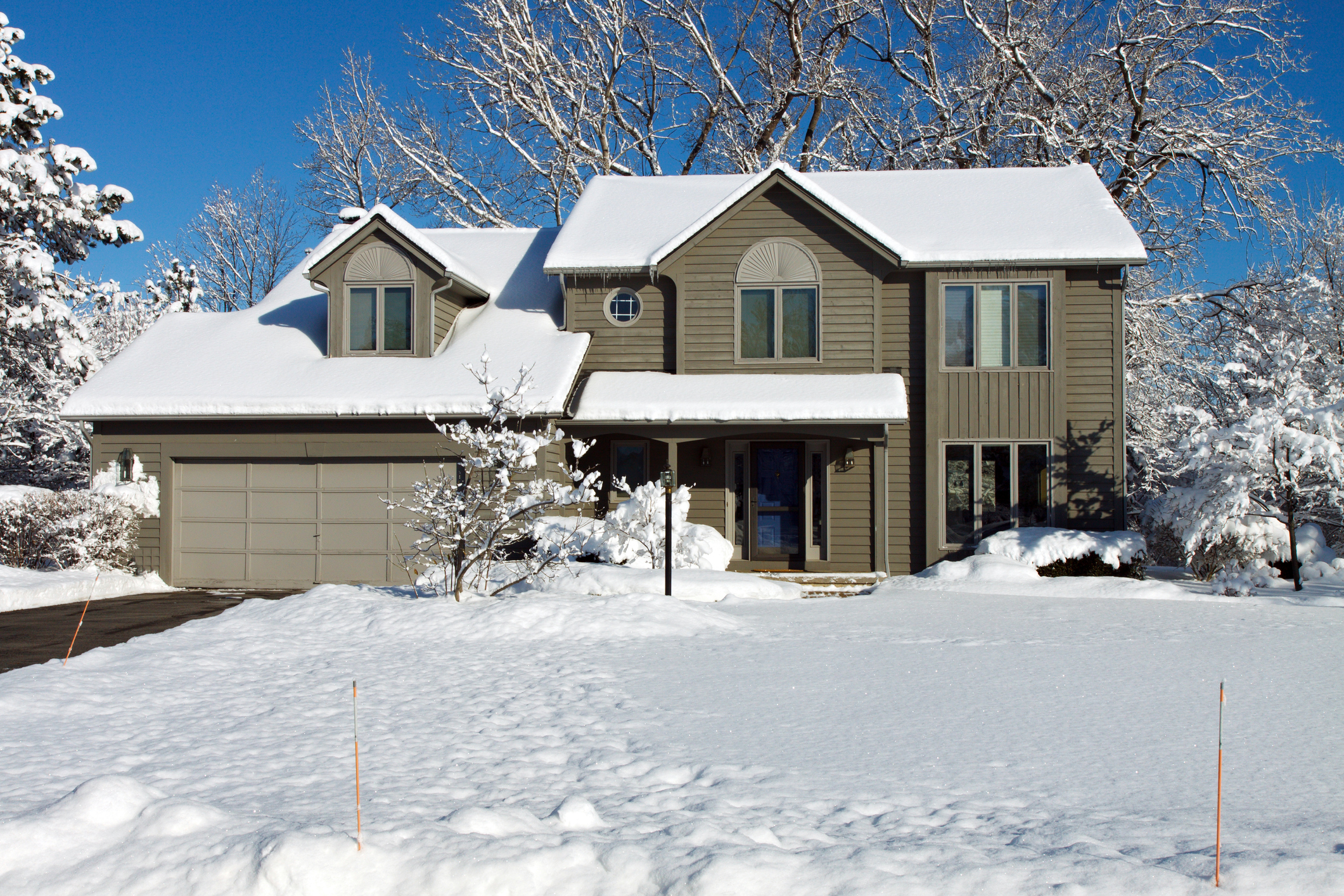
Extended periods of freezing weather can cause hundreds or even thousands of dollars’ worth of damage to unoccupied homes. By following a few simple tips, you can enjoy your winter vacation, knowing that your home is safe.
- Water pipes that are accessible can be fitted with foam or fiberglass insulation sleeves, or wrapping. The thicker the insulation the better. It’s important not to leave any gaps in the insulation that expose the pipe to cold air.
- All cracks and openings in outside walls and foundations near water pipes should be sealed with caulking. If these openings have been sealed already, check them again, as caulking can crumble with age and let in cold air.
- Keep kitchen and bath pipes exposed to warm air from your heating system by keeping cabinet doors open during periods of extreme cold.
- If you have a crawl space, make sure the outside air vents underneath the flooring are closed.
- If you return home and suspect a pipe is frozen, turn on all faucets. If a pipe has already burst, turn off the water at the main shut-off valve and call a professional plumber immediately. (Keep your faucets open until the pipe is repaired.) Never try to thaw a frozen pipe with a torch or other open flame.
- Turning your home heat too far down can cost far more than you might save on your heating bill. While 50 degrees may seem like a sufficient temperature setting, the outside walls will remain substantially colder. Keeping your house at a normal night time thermostat setting is a good rule of thumb for short vacations.
Further steps to give you peace of mind while away
- Make your home look occupied as it deters thieves. Ask the post office to hold your mail or have a trusted neighbor pick it up for you. Provide the neighbor with contact information in case something happens that needs immediate attention.
- Arrange for snow removal in advance. Let the snow plow contractor know that you want the house to look occupied.
- If you have a home security system, let the company know in advance the house will be empty.
- Depending on how long you’ll be away, you want to keep your refrigerator and freezers plugged in, but not small appliances such as a toaster or hair dryer. Unplugging everything unnecessary will also save on your power bill by reducing “phantom” or “vampire” usage by appliances.
- After taking out the trash, wash and dry the trash and recycling containers. Either refrigerate or give away any open loaves of bread, fruit, or other food items you normally keep on the counter to deter pests.
- Wash and dry all dirty dishes and put them away.
- Get rid of anything from the refrigerator that can mold and leave odors.
- Scrub, disinfect, and dry your bathroom as a moist bathroom can encourage mold growth.
- Finally, don’t forget to put trash cans and recycling bins in your garage to prevent them from being blown around, and check for weak or loose tree branches that could fall and damage your house.
Are you in the market for homeowners insurance?
Find an agent near you to discuss the right coverage for your unique needs.
*Originally published February 4th, 2020



